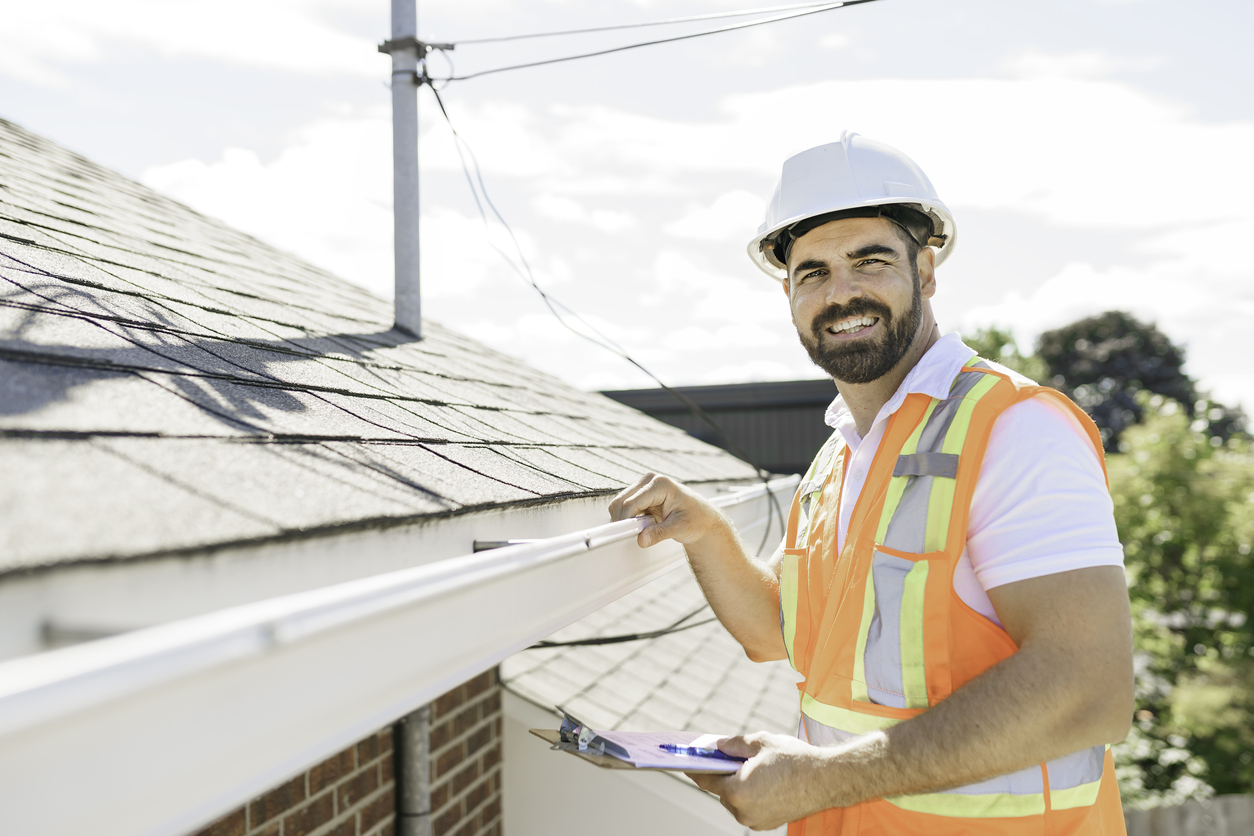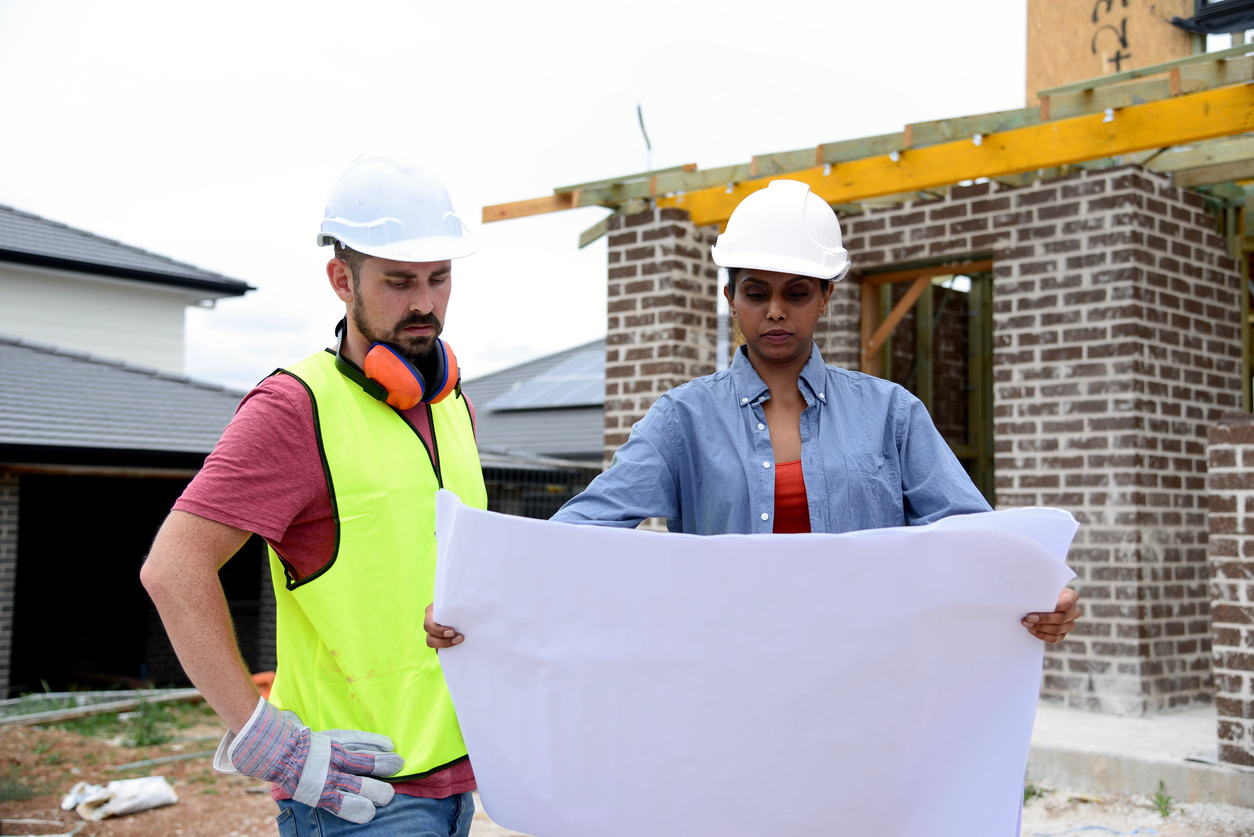We may earn revenue from the products available on this page and participate in affiliate programs. Learn More ›
Welcome to Bob Vila’s Guide to House Flipping, a series dedicated to showing you the best places for house flipping, crucial steps for selecting a property, must-do upgrades and repairs, and surprising ways to reduce your costs to get the most from your house flipping sales. Here you’ll find fresh insights mixed with Bob’s tried-and-true advice, our vetted shopping guides, and the inside track to the right professionals to get your flip to the finish line.
Fans of house-flipping shows are familiar with seeing potential buyers tour fixer-uppers looking for the right investment property. But, as the buyers inspect a house, there’s almost always a construction professional who comes along with them. This is an essential step—not just for the show’s benefit—but also for ordinary house flippers to ensure the home they buy doesn’t have hidden problems that could keep them from making a profit. Learn how to find the right contractor to look at the house and what they should look for before you make an offer.
First: Get the Right Guy
Technically, a contractor is just someone who hires and schedules subcontractors on a job, but you’ll want one with hands-on knowledge in both construction and real estate. Ask friends and neighbors for references, and then vet the contractor as if you were hiring him to work on your primary home. The most successful house flippers often develop long-term professional relationships with contractors who accompany them on walk-throughs and then tackle the needed property repairs.
Spotting Grade Issues
Before stepping foot in the house, a good contractor will look at the yard, noting the way it slopes—it should slope away from the foundation—and seeing whether any areas are recessed. An incorrect grade may indicate the foundation is at risk of leaks, but it can also signify other issues. For example, if the soil is too high along the foundation, it increases the risk of termite infestations. A knowledgeable contractor will quickly spot grade issues that could be too pricey to repair.

Pinpointing Violations
Communities adopt building codes designed to ensure a house is safe for its occupants, yet enthusiastic homeowners have been known to tackle remodeling projects without pulling a permit. This can result in non-code-compliant remodeling projects, such as basement bedrooms that don’t have egress windows, stairs without railings, and a host of other code violations you’ll likely have to pay to repair before reselling the house. Most fixer-uppers sell “as is,” but a good contractor can spot violations.
RELATED: 10 Building Code Violations Your Home May Be Guilty Of
Answering Structural Questions
Flipping a house involves fixing existing problems, remodeling to update the home’s layout, and adding new paint and flooring to make it move-in ready. If you have specific plans for updating, such as opening up a small room to make the area larger, you’ll need to know whether the wall you want to remove is load-bearing. You may also have additional structural questions, such as whether the roof will support heavier shingles. Having a contractor with you during a walkthrough is the quickest way to get your structural questions answered.

Sleuthing Out Cover-Ups
Fresh paint makes everything look bright and new, but it can also cover up a host of problems, especially if you find it on an old deck or interior wood trim. Sellers have been known to cover up wood rot, termite damage, and water stains by painting over them. A knowledgeable contractor will be able to spot hidden problems and discover the issues that lie beneath. For those planning to get into house flipping as a full-time job, it’s essential to have a pro who can spot problems that turn a freshly painted house into a money pit.
RELATED: Solved! Should I Get a Home Warranty for a Rental Property?

Offering an Estimate
Successfully flipping a house involves carefully analyzing the cost of the house and all necessary repairs and then estimating what the house will sell for once it’s fixed. Unless you plan to do all the work yourself, you’ll want an estimate of the repair costs to determine if house is a good deal. Real estate investors often use the house-flipping rule of 70 to calculate their potential house-flipping profit. Getting a contractor’s estimate for the work is essential in figuring out whether the house is worth flipping.
RELATED: 9 Things Home Makeover Shows Never Tell You

Doing the Work
Optimally, the contractor that inspects the house before you purchase it will also do the repair work. In many cases, the contractor will not charge a fee for walking through the house with you, knowing that he’ll get the work if you buy the house. Some full-time house-flippers establish long-term relationships with trusted contractors in this way. If he can’t do the work, he’ll usually be able to recommend someone he feels is trustworthy to do the job.









